Akela hoon main is jahaan mein – Kishore
October 13 was Kishore Kumar’s death anniversary. It was also his brother Ashok Kumar’s birthday, and he stopped celebrating his birthday after Kishore Kumar’s death. The Ganguli brothers were immensely talented and Kishore more so. He was indeed a “Harfan Maula” – a man who was completely comfortable in all departments of filmmaking. He was a writer, producer, director, music director, singer, actor. We take a look at the eight films that he directed. Though he gave music in Bengali in many non-film albums, he strangely didn’t make any films in Bengali. We can only speculate why.
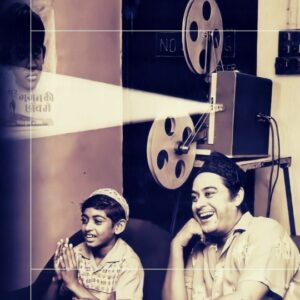 Actress Tanuja whose husband was Kishore’s nephew narrated an incident in an interview of the talent of the three brothers. One would say a random word, and the other would add something to it, and the third would add more until it reached a frenetic pace, till one of them tripped up. This was instantaneous creation and spontaneity on the move by the brothers. It was but natural that Kishore used his spontaneity well in his films, even if the results were bizarre (Badhti ka Naam Daadhi) or self-deprecatory (Shabash Daddy).
Actress Tanuja whose husband was Kishore’s nephew narrated an incident in an interview of the talent of the three brothers. One would say a random word, and the other would add something to it, and the third would add more until it reached a frenetic pace, till one of them tripped up. This was instantaneous creation and spontaneity on the move by the brothers. It was but natural that Kishore used his spontaneity well in his films, even if the results were bizarre (Badhti ka Naam Daadhi) or self-deprecatory (Shabash Daddy).
Kishore Kumar always complained that his elder brother Ashok Kumar “forced” him into acting though it was against his soul. Even then, he did a tremendous job as a comic actor whose comic timing was perfect and incomparable. Combined with a high-energy singing and frenetic, almost anarchic comic acting, the results were soon apparent – Box office hits followed one after another.
It is rumored that the mega-hit ‘Chalti ka Naam Gaadi’ was “ghost” directed by Kishore Kumar. The film remains one of the best comedies of Hindi Cinema. From “ghost” directing, to being credited as director, producer, and music director was just a step away. That happened with ‘Jhumroo’, where he was a “ghost” producer and director was credited as Shankar Mukherjee.
‘Door Gagan ki Chhaon Mein’ (1964) was Kishore’s first directorial venture, and he didn’t disappoint. The story about an ex-soldier trying to cure his mute son Ramu (played by real-life son Amit Kumar) had a lyrical pace that seemed in tune with the “parallel cinema”. The story progressed in fits and starts, but the climax was very much in keeping with the happy ending demands of the commercial Hindi cinema. The soundtrack consists of one gem after another, and it is impossible to take one example and comment. The musical style is much like that of his mentor S.D. Burman, whose short, sometimes staccato phrasing with minor fillers of 2 bars, is reflected in some of the songs.
There are two Asha songs picturized on the heroine Supriya Choudhury. The first one is the lullaby whispered by Asha Bhonsale. Khoya Khoya Chanda Khoye Khoye taare’ is a softly whispered lullaby in a six beats ‘daadra’ cycle where each line in the antra and mukhda is followed by glockenspiel filler. The flute is the main instrument in the interlude. With a santoor in the background, it sounds almost like the music of Burman dada. The song, the picturization, and the music are all in absolute sync.
A song for every season is the hope-filled ‘Aa chal ke tujhe’. The song was written, sung, scored, and acted by Kishore. The scene is of Shankar, the ex-soldier, instilling hope in his young mute son that “everything will be fine and that there is always hope. As they set out on a road to the city”. The movie’s grand finale happens as a sad, tearful Shankar, while being comforted by Ramu, hears prayers in a nearby temple. The first two antras are sung by Manna Dey. Kishore enters the final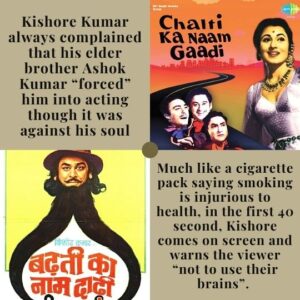 bridge with, ‘Kiya sabkuch tere hawaale’, almost stealing Manna’s thunder. The song also fits in with the prevalent emotion in the film of handing over oneself to the divine, having exhausted all human ways. All these spoke of a man in full command of his craft in all departments of filmmaking.
bridge with, ‘Kiya sabkuch tere hawaale’, almost stealing Manna’s thunder. The song also fits in with the prevalent emotion in the film of handing over oneself to the divine, having exhausted all human ways. All these spoke of a man in full command of his craft in all departments of filmmaking.
‘Hum Do Daaku’ (1967) was a goofy comedy where both the film and the songs ended up in obscurity. Kishore made ‘Door ka Raahi’ (1971) around the time of his wife Madhubala’s death. The almost morbid self-absorption and introspection resulted in an incredible musical album, but the film flopped. The film is also notable for the entry of Sulakshana Pandit, who sang the pensive duet with Kishore ‘Beqaraar Dil Tu gaaye jaa’. The reflective tone of the song is seen in the song picturization, where the song ends with a not-so-happy ending. From the opening piano introduction to its climactic peak, the song is about being happy even with inner sadness. Throughout his film career, somewhere or the other, Kishore would always address this “inner sadness”. Though elder brother Ashok is singing the song on-screen, there is no doubt whose soul is in the music.
The reflective ‘Panthi hoon main us path ka’, ‘Khushi do Ghadi ki’, the climactic ‘Mujhey kho jaaney do’ all spoke of a man, searching for something and yet unable to find it. Kishore, the artist, may not have found what he was looking for, but at least he had a counterpoint as if telling himself not to lose hope, with ‘Jeevan se na haar o jeenewale’. The film was released in 1971 when Kishore was The Voice of the airwaves and Rajesh Khanna. The audience would have none of the introspection and gave it the thumbs down.
From the sublime to the ridiculous. So goes the saying. In this case, it proved more than true. ‘Badhti ka Naam Daadhi’ (1974) was an over the top sometimes tacky, mostly whacky spoof of almost everything – Hindi films, the cliches of Hindi cinema, tributes to Kishore’s favorite actors and movies. As he says in his introduction, it was an indigestible “bhel puri” that the audience could like or reject. The film is probably the only film in Hindi cinema that starts with a statutory warning!
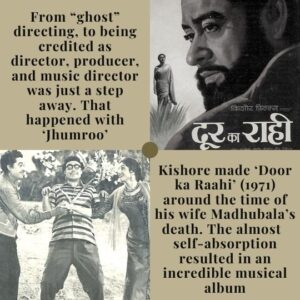 Much like a cigarette pack saying smoking is injurious to health, in the first 40 seconds, Kishore comes on screen and warns the viewer “not to use their brains”. The anarchic mayhem reaches its absurd and even surprise ending, but not before going through some songs. One such ridiculous song features the Hero “Gypsy’s” antagonist Khadak Singh dancing with a bevy of beauties. This is probably the only time that K.N. Singh ever danced and sang on screen! And how! It is better seen to be believed https://youtu.be/OQ9KuJcbBz4. Son Amit Kumar also acted in his first adult role, while Bappi Lahiri too was in a small role as one of the musicians in “Gypsy’s” musical group. The lunacy continues throughout the film, and it is almost impossible to pick out more.
Much like a cigarette pack saying smoking is injurious to health, in the first 40 seconds, Kishore comes on screen and warns the viewer “not to use their brains”. The anarchic mayhem reaches its absurd and even surprise ending, but not before going through some songs. One such ridiculous song features the Hero “Gypsy’s” antagonist Khadak Singh dancing with a bevy of beauties. This is probably the only time that K.N. Singh ever danced and sang on screen! And how! It is better seen to be believed https://youtu.be/OQ9KuJcbBz4. Son Amit Kumar also acted in his first adult role, while Bappi Lahiri too was in a small role as one of the musicians in “Gypsy’s” musical group. The lunacy continues throughout the film, and it is almost impossible to pick out more.
By the mid and late 1970s, Kishore was the top singer of the industry, and his voice was the voice for leading, second fiddle, and even small heroes. He didn’t need to make any more movies – unless it was to show “losses to avoid income tax”, as is often bandied about. Kishore himself made fun of it in ‘Aansun aur Muskaan’ with ‘Peeche pad gaya incum taxum’.
Given this background ‘Shabash Daddy’ (1979) perhaps makes sense. It is also a self-deprecatory look at his own life. He had just got married for the third time to Yogita Bali, who also acted in the film along with his son Amit Kumar. There are repeated self-effacing comments in the movie. The best is when son Amit Kumar laments at his father ‘Karne chaley they shaadi meri khud ban baithey dulha’.
However, it doesn’t necessarily start like that as the retired colonel advises his son to get married, resulting in a delightful duet between father and son, on and offscreen. ‘Pyar aur shaadi duniya ne ye reet banayi’, is part tribute to Frank Sinatra as its tune is Sinatra’s famous Love and Marriage.
As if that’s not enough, Mehmood and Party come in with an excoriation of Kishore’s marriage. It is clear that he is making fun of himself through Mehmood, yet it was all lost on the audience who treated this as another eccentric production. The song ‘Ek ghabru budhao ko pyar ho gaya’ makes it clear. Excess. Over the top. But it was probably making a statement, even if it is at one’s own expense. Again, the self-deprecatory tone was lost, and the film was a flop.
‘Door Wadiyon me Kahin’ (1980) was a songless film, also devoid of any music. It ran for about a week or so. When one famous critic panned the movie as being pretentious, Kishore took out a full-page ad in the Times of India explaining the film and countering the critic. That still didn’t bring the audience in.
‘Chalti ka Naam Zindagi’ (1982) played it safe by reuniting the three Mohan brothers of ‘Chalti Ka Naam Gaadi’, upgrading them to the 1980s as being in the hotel business. It was trying to improve on the original and did not succeed entirely. ‘Mamta ki Chhaon Mein’ (1989) was a posthumous release that also didn’t create any waves.
If anyone peeked into his soul, and that indeed was a challenging task given that he preferred solitude to the company of friends, Kishore always seemed to be seeking something far away. He always seemed to be on a never-ending lesser traveled road where he was the only traveler.
The song ‘Akela hoon mai is Jahaan mein’ from the unreleased film ‘Neela Aasman’ articulates best as to what is in his heart. The song talks about his solitude, with the sky and the horizon as his only fellow travelers. The sharp-eared may pick the tribute and even copy of the theme from the classic Western Shane. The gradual addition of more and more instruments reaching a crescendo in the grand finale shows that Kishore may not know where he is going, but he sure is going there singing.


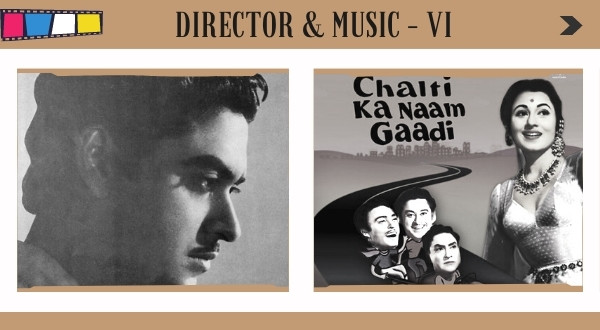
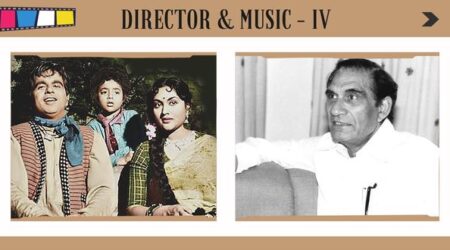
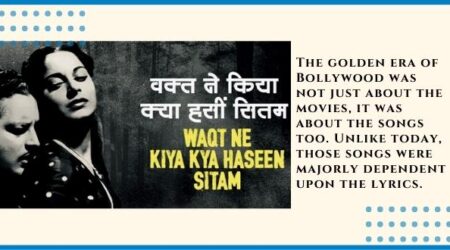
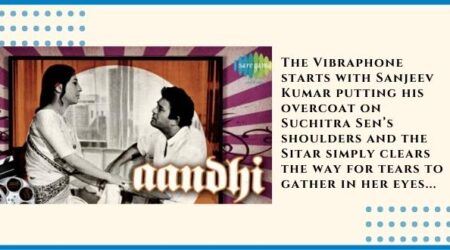
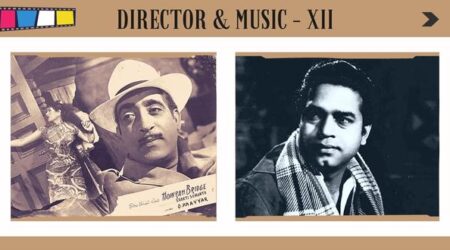
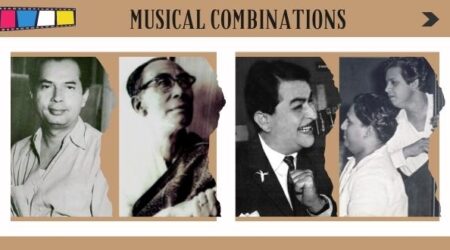
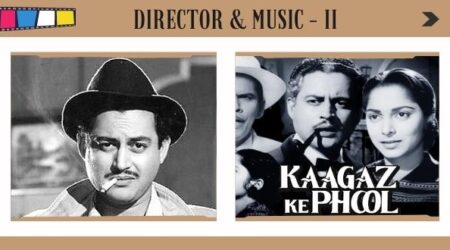

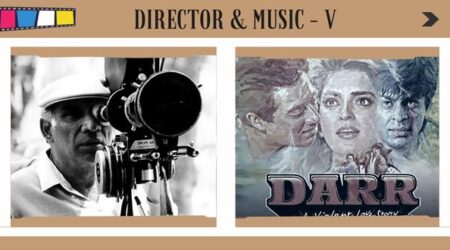

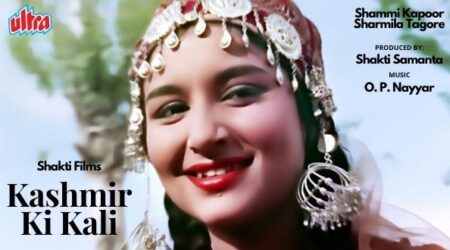

Comments (8)
Great insights of a creative genius. Ramesh has written a well-researched pice on Kishore Kumar.
Greatt Information.
Waah, Great
A beautiful read. Catches the soul of the legend.
Informative
REMARKABLE DETAILED INFORMATION …. KYA BAAAT HAI …. FIDAA … ???
A befitting tribute to a very talented singer,actor and many more talents! Thanks for sharing, Ramesh.
Very well presented… Good job Ramesh